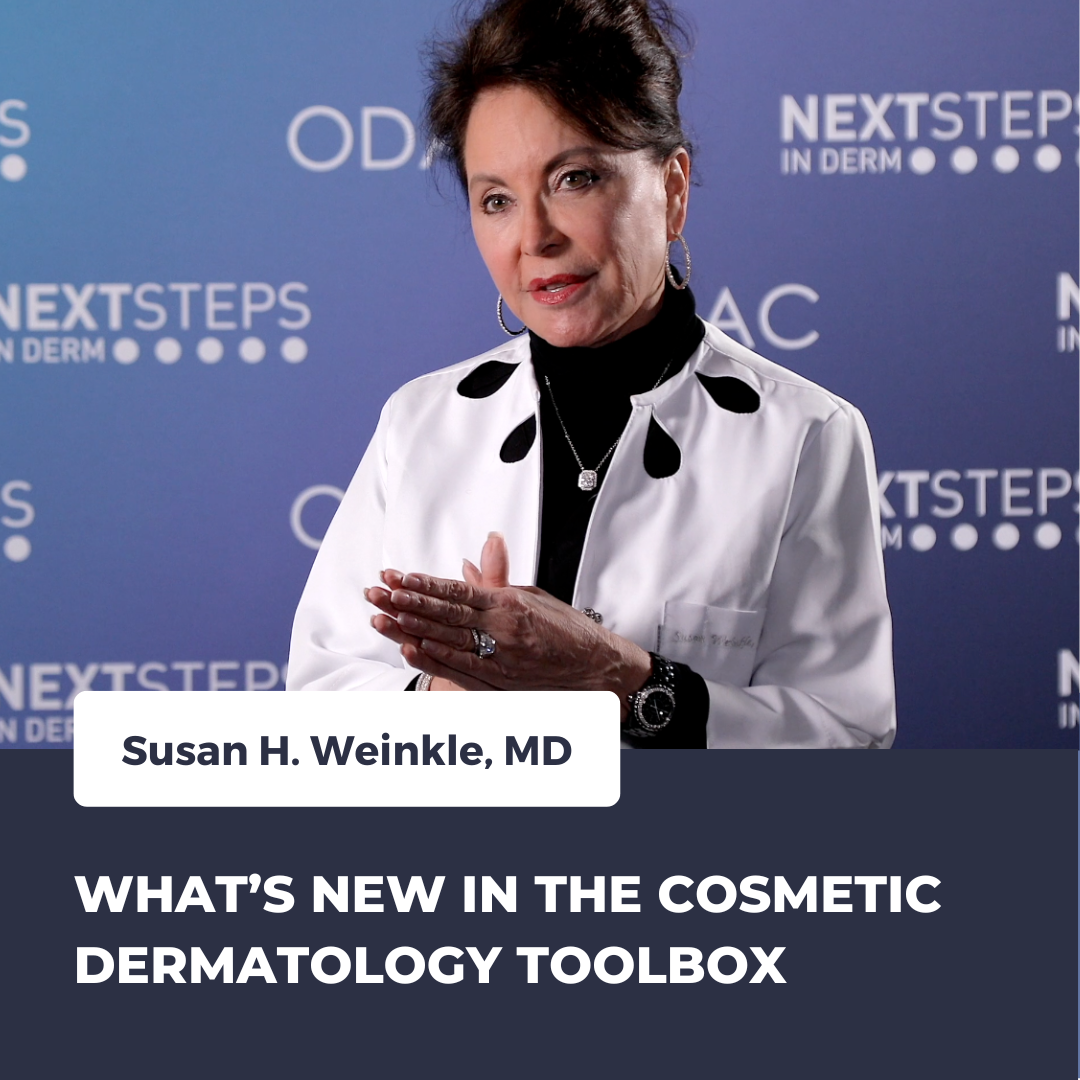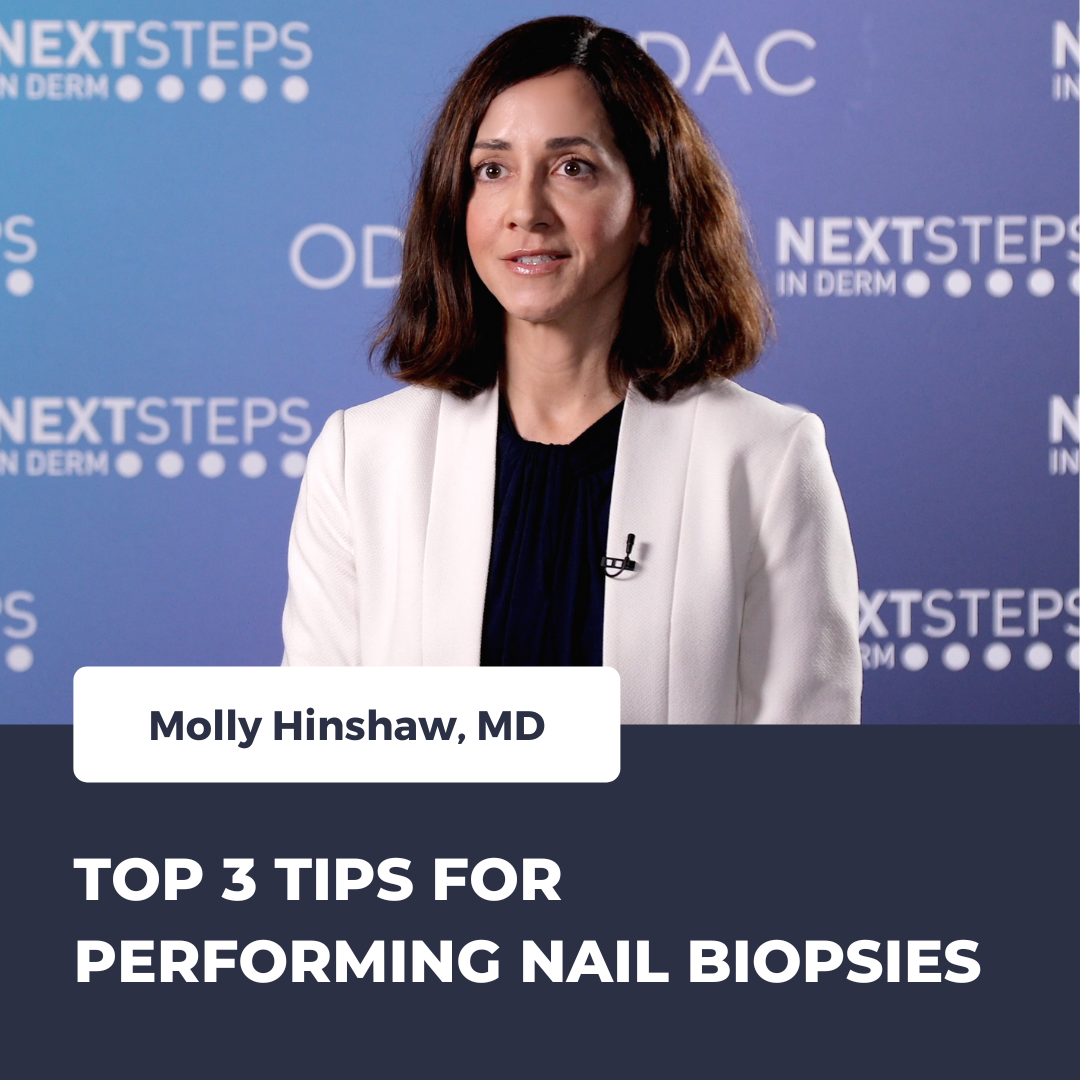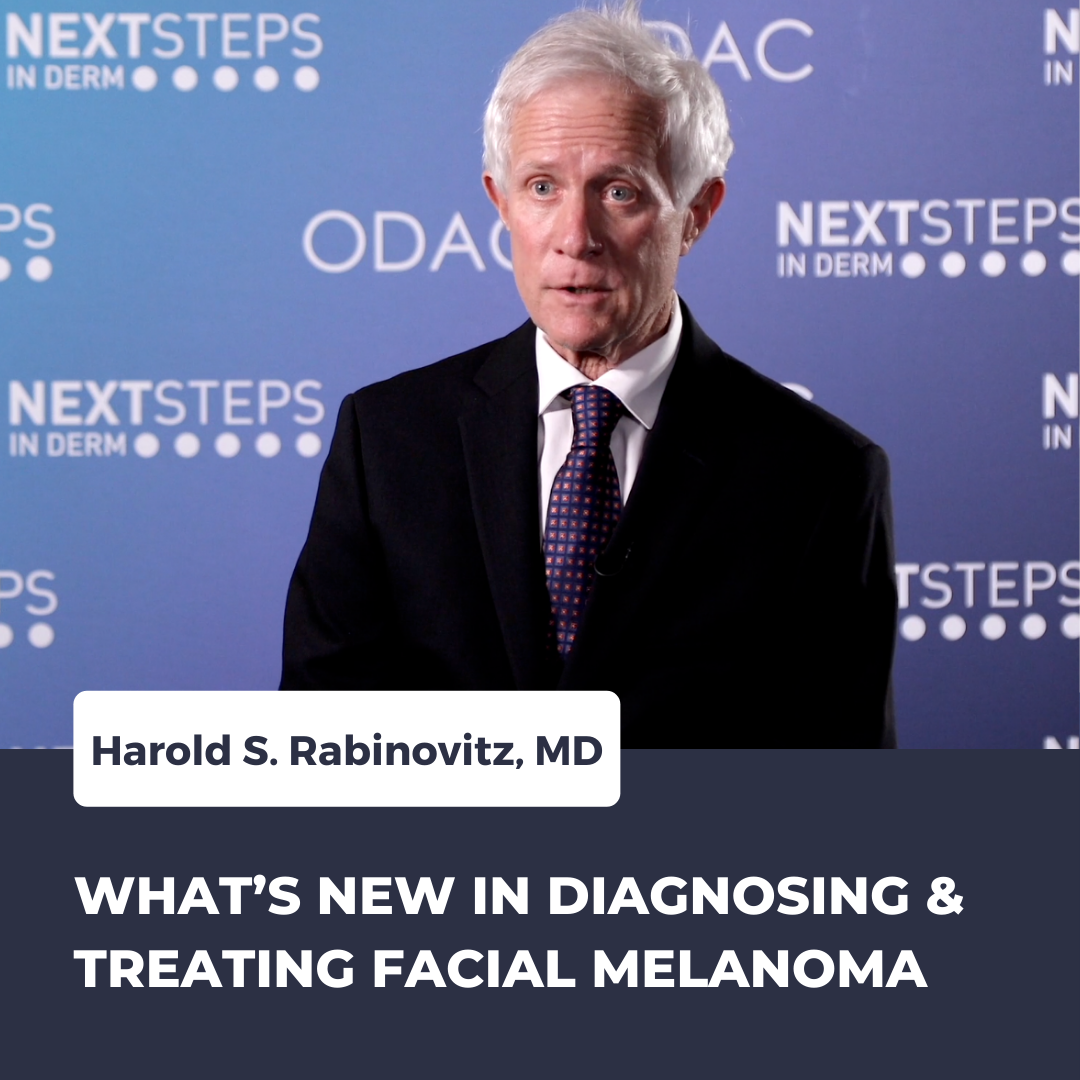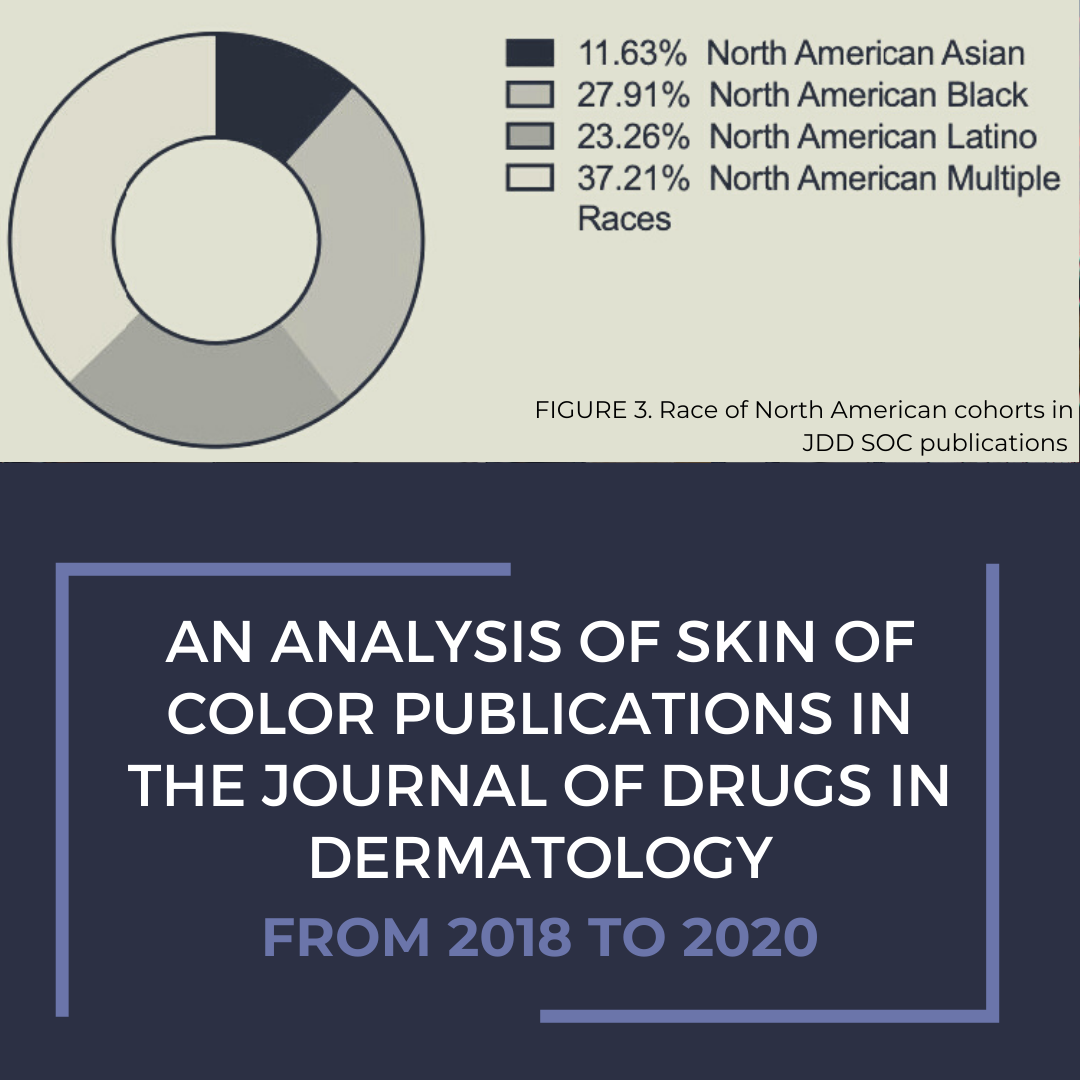What’s New in the Cosmetic Dermatology Toolbox
 Next Steps in Derm, in partnership with ODAC Dermatology, Aesthetic and Surgical Conference, interviewed Dr. Susan Weinkle about how the cosmetic dermatology field has grown thanks to a better understanding of patients' needs. Watch as she describes how products are being used in different and safer ways, and how as new products are being introduced in the market, dermatologists are now able to …
Next Steps in Derm, in partnership with ODAC Dermatology, Aesthetic and Surgical Conference, interviewed Dr. Susan Weinkle about how the cosmetic dermatology field has grown thanks to a better understanding of patients' needs. Watch as she describes how products are being used in different and safer ways, and how as new products are being introduced in the market, dermatologists are now able to …
 Next Steps in Derm, in partnership with ODAC Dermatology, Aesthetic and Surgical Conference, interviewed Dr. Susan Weinkle about how the cosmetic dermatology field has grown thanks to a better understanding of patients' needs. Watch as she describes how products are being used in different and safer ways, and how as new products are being introduced in the market, dermatologists are now able to …
Next Steps in Derm, in partnership with ODAC Dermatology, Aesthetic and Surgical Conference, interviewed Dr. Susan Weinkle about how the cosmetic dermatology field has grown thanks to a better understanding of patients' needs. Watch as she describes how products are being used in different and safer ways, and how as new products are being introduced in the market, dermatologists are now able to … Continue reading "What’s New in the Cosmetic Dermatology Toolbox"


 Next Steps in Derm, in partnership with ODAC Dermatology, Aesthetic and Surgical Conference, interviewed Dr. Molly Hinshaw (who is board certified in Dermatology and Dermatopathology, and directs the Nail Clinic at UWHealth in Madison, WI) about nail biopsies. Watch as she offers advice to her fellow dermatologists on preparing themselves (as well as their staff and patients) before this procedure …
Next Steps in Derm, in partnership with ODAC Dermatology, Aesthetic and Surgical Conference, interviewed Dr. Molly Hinshaw (who is board certified in Dermatology and Dermatopathology, and directs the Nail Clinic at UWHealth in Madison, WI) about nail biopsies. Watch as she offers advice to her fellow dermatologists on preparing themselves (as well as their staff and patients) before this procedure …  INTRODUCTION
Cheilitis granulomatosa (CG) is a subtype of orofacial granulomatosis that results in facial and oral swelling in the absence of non-caseating granulomatous systemic diseases such as Crohn’s and sarcoidosis.1 With concurrent facial palsy and a plicated tongue, the condition is referred to as Melkersson-Rosenthal syndrome.1,2 Both CG and Melkersson-Rosenthal syndrome are in the …
INTRODUCTION
Cheilitis granulomatosa (CG) is a subtype of orofacial granulomatosis that results in facial and oral swelling in the absence of non-caseating granulomatous systemic diseases such as Crohn’s and sarcoidosis.1 With concurrent facial palsy and a plicated tongue, the condition is referred to as Melkersson-Rosenthal syndrome.1,2 Both CG and Melkersson-Rosenthal syndrome are in the …  Next Steps in Derm, in partnership with ODAC Dermatology, Aesthetic and Surgical Conference, interviewed Dr. Harold S. Rabinovitz (Professor of Dermatology at Medical College of Georgia) about the latest trends in managing facial melanoma. Watch as he unveils how doctors are better equipped to diagnose patients using new devices, plus the single treatment option he considers a game changer.
…
Next Steps in Derm, in partnership with ODAC Dermatology, Aesthetic and Surgical Conference, interviewed Dr. Harold S. Rabinovitz (Professor of Dermatology at Medical College of Georgia) about the latest trends in managing facial melanoma. Watch as he unveils how doctors are better equipped to diagnose patients using new devices, plus the single treatment option he considers a game changer.
…  INTRODUCTION
As the United States population becomes increasingly diverse, it is exceedingly important for dermatologists to be knowledgeable about treating patients with skin of color (SOC). The published literature is an especially valuable resource for treating SOC. Many prevalent dermatological conditions, such as acne vulgaris, atopic dermatitis, and psoriasis, differ histologically and/ …
INTRODUCTION
As the United States population becomes increasingly diverse, it is exceedingly important for dermatologists to be knowledgeable about treating patients with skin of color (SOC). The published literature is an especially valuable resource for treating SOC. Many prevalent dermatological conditions, such as acne vulgaris, atopic dermatitis, and psoriasis, differ histologically and/ …